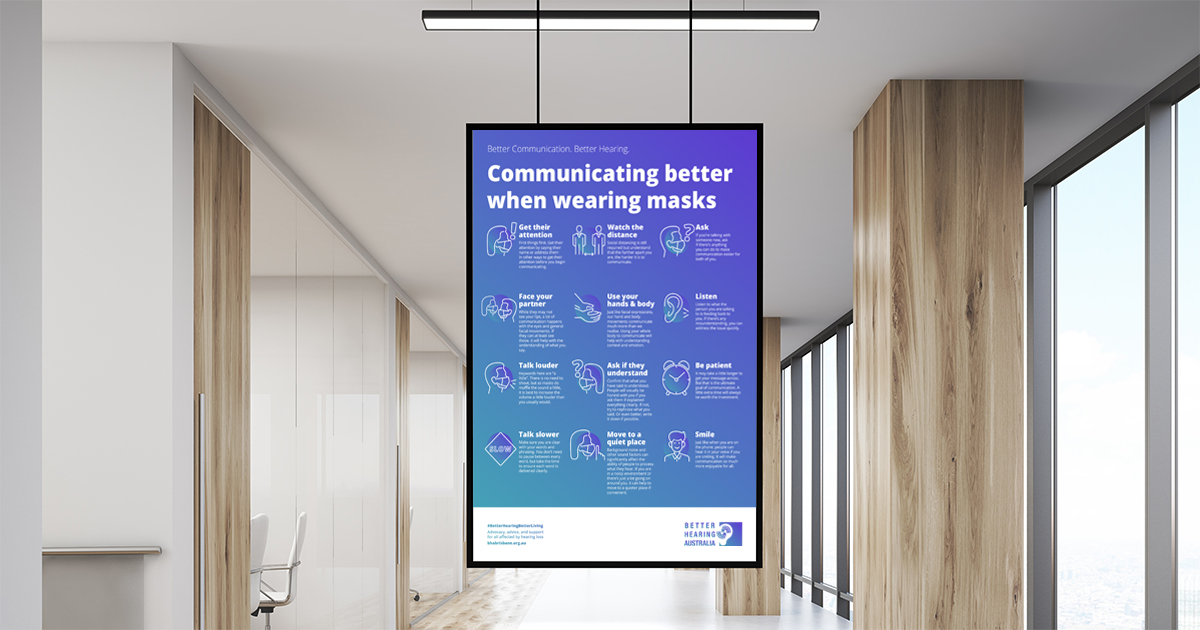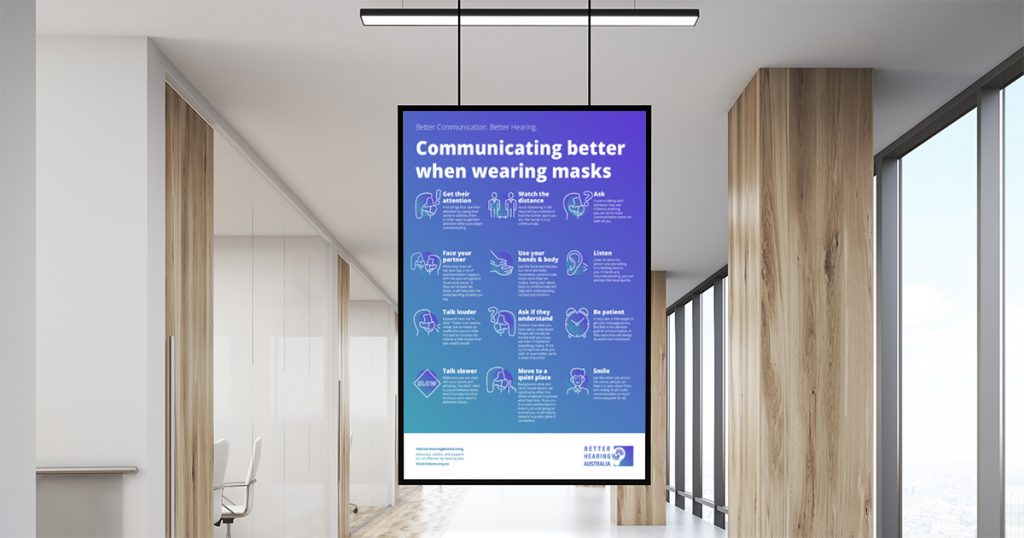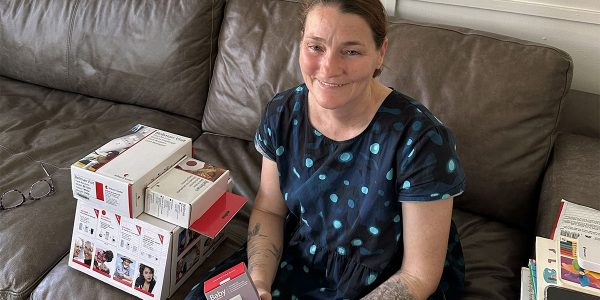Communicating better when wearing masks

We know communicating with masks can be difficult.
To improve communication it’s up to everyone, whether heard of hearing or not, to do their best when communicating.
Here are 12 tips to help you communicate whether you are the one hard of hearing or not. These tips are easy to follow and can make the difference between the lived experience of someone with hearing loss.
You can also download the poster so you can print it out and hang it up.
Don’t forget you can also download our Mask Exemption advice image that you can save to your phone showing people that people talking to someone with hearing loss can remove their masks.
Please share this information with anyone who may benefit or knows someone who will benefit from this advice.

Get their attention
First things first. Get their attention by saying their name or address them in other ways to get their attention before you begin communicating.
Face your partner
While they may not see your lips, a lot of communication happens with the eyes and general facial movements. If they can at least see those, it will help with the understanding of what you say.
Talk louder
Keywords here are “a little”. There is no need to shout, but as masks do muffle the sound a little, it is best to increase the volume a little louder than you usually would.
Talk slower
Make sure you are clear with your words and phrasing. You don’t need to pause between every word, but take the time to ensure each word is delivered clearly.
Watch the distance
Social distancing is still required but understand that the further apart you are, the harder it is to communicate.
Use your hands & body
Just like facial expressions, our hand and body movements communicate much more than we realise. Using your whole body to communicate will help with understanding context and emotion.
Ask if they understand
Confirm that what you have said is understood. People will usually be honest with you if you ask them if you have explained everything clearly. If not, try to rephrase what you said. Or even better, write it down if possible.
Move to a quiet place
Background noise and other sound factors can significantly affect the ability of people to process what they hear. If you are in a noisy environment or there’s just a lot going on around you, it can help to move to a quieter place if convenient.
Ask
If you’re talking with someone new, ask if there’s anything you can do to make communication easier for both of you.
Listen
Listen to what the person you are talking to is feeding back to you. If there’s any misunderstanding, you can address the issue quickly.
Be patient
It may take a little longer to get your message across. But that is the ultimate goal of communication. A little extra time will always be worth the investment.
Smile
Just like when you are on the phone, people can hear it in your voice if you are smiling. It will make communication so much more enjoyable for all.





